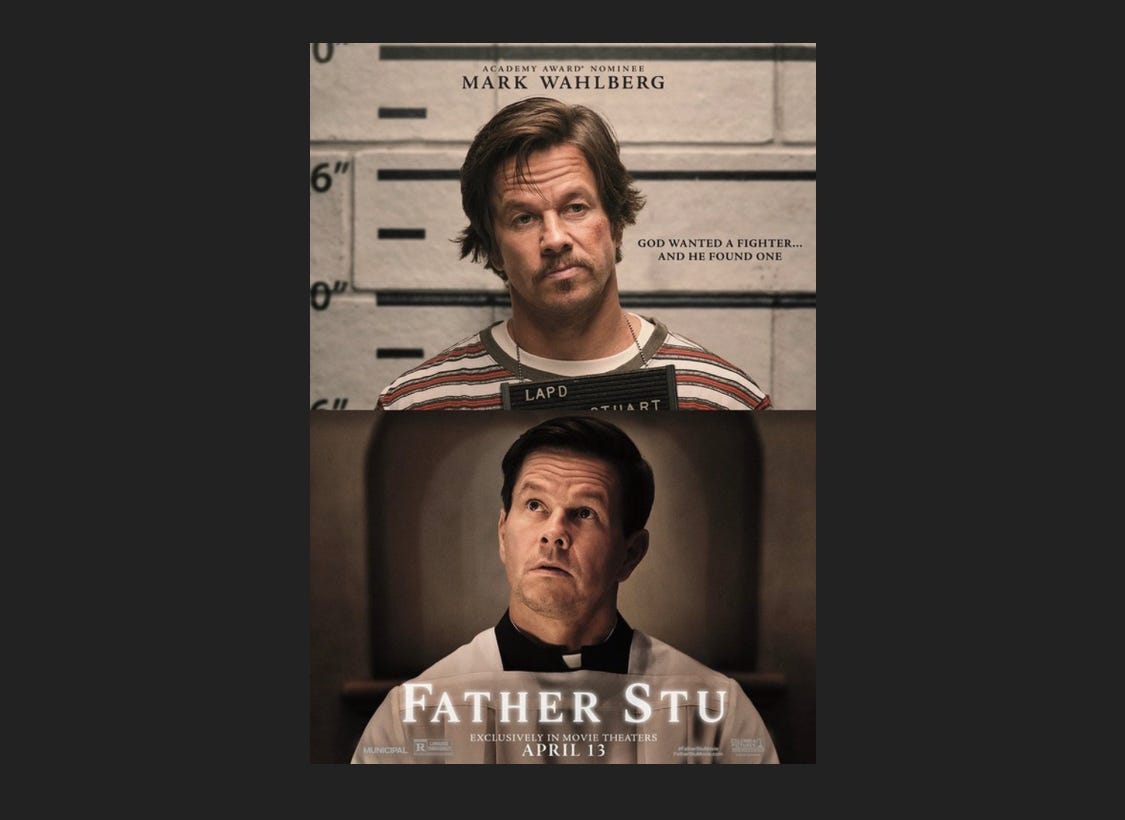Father Stu: A movie that Cuts to the Heart of Redemption and Suffering
“We shouldn’t pray for an easy life, but the strength to endure a difficult one.” —Father Stu
Yesterday I went to see the movie Father Stu, starring Mark Wahlberg as the title character and co-starring Mel Gibson. It was a moving, inspirational movie (based on a true story)—not only because Stu went from “bad boy” to boxer to drifter to Catholic to priest, but because Stu did not let anything stop him. Rejected from seminary due to his questionable past, Stu managed to talk his way in. Diagnosed with a degenerative disease that eventually left him practically helpless in a wheelchair, and told he could not be ordained in consequence, Stu never lost faith—and was ordained.
Fr. Stu was a saint who explicitly and implicitly, by word and action, emphasized the theology of suffering. Most of us will not die at age 50 after spending years helpless in a wheelchair, but we will all face serious trials in life. At one point the character in the movie who became a priest because of his father’s expectations and not his own admits to Fr. Stu that he could not understand why Stu, when given an “out,” did not take it. But that is the difference between a basically good, sincere person and a Saint. Fr. Stu went above and beyond both what was required of him and what was deemed possible.
Yet Fr. Stu is a very human saint, and not just because he started as a sinner. Stu weeps and shouts at God, he has to work during seminary to control thoughts of his former girlfriend, and he uses some explicit language when preaching to prison inmates. Does this make him a better saint? No, but it should encourage us. If Fr. Stu could do it, so can we, especially if we have much smaller obstacles than Stu had.
But we also have to have Stu’s humility, and his willingness to die for God. Stu brought his parents back together, he touched many people’s lives, because he would not let anybody or anything stop him, because he knew serving God was more important even then making the people he loved happy in the moment. On the other hand, this was not due to arrogance. There is one beautiful scene where Stu, already affected by his degenerative disease, drops his walking sticks and crawls up the church aisle to the statue of the Blessed Virgin Mary. When his father finds him and tell him this is not the hill to die on, Stu responds, “This is the only hill to die on.” Stu understood the importance of being with Mary on Calvary, of clinging to the crucified Christ. Only through suffering do we reach eternal glory.
“Blessed are ye when they shall revile you, and persecute you, and speak all that is evil against you, untruly, for my sake: Be glad and rejoice, for your reward is very great in heaven.“ —Jesus Christ (Matt. 5:11-12)


